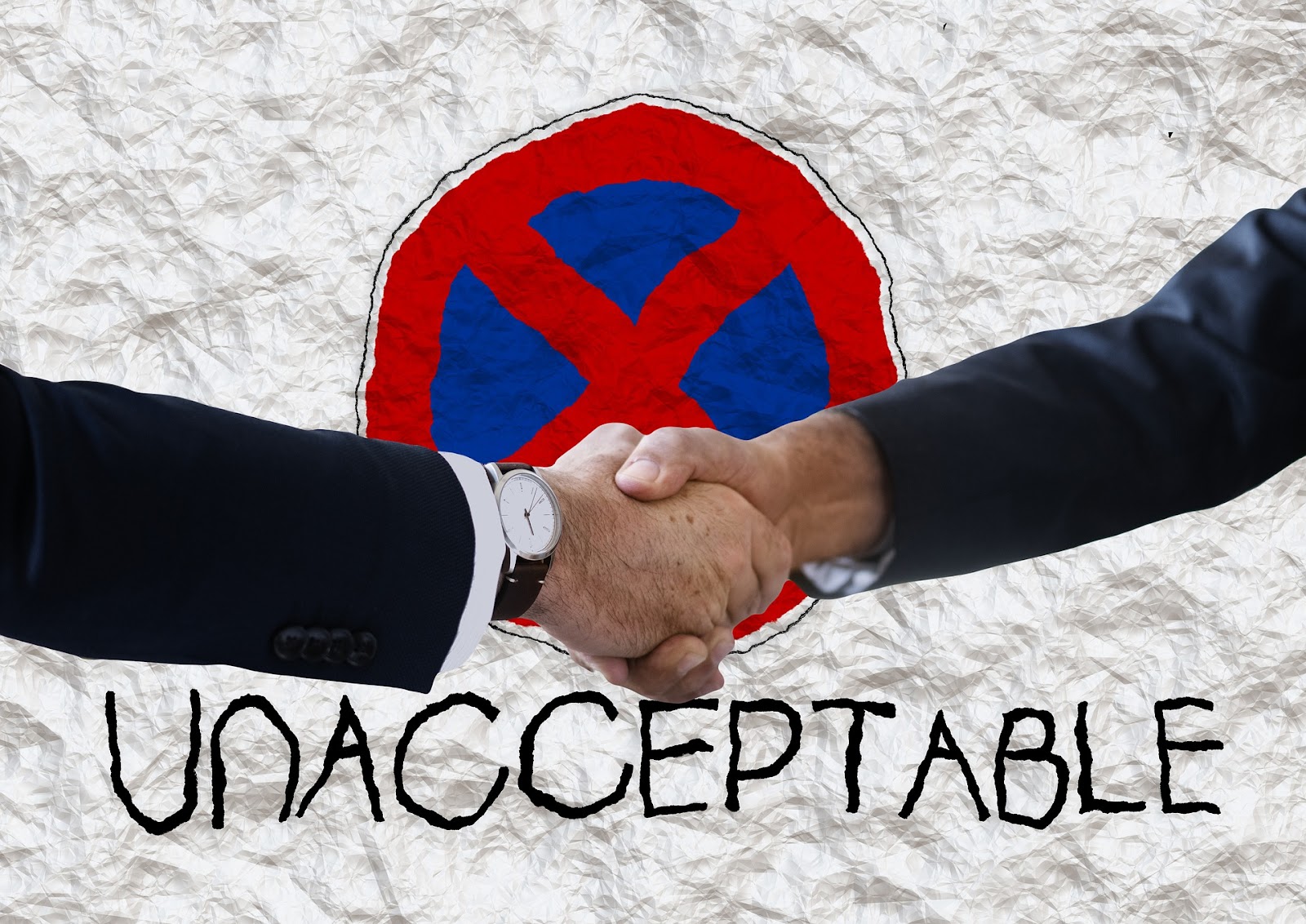Explore your options
Get a 100% confidential and complimentary business valuation.
A business purchase agreement isn’t all about matching up the sale price with the accompanying stock or assets. As the seller of a business, you’ll also be expected to sign off on a number of restrictive clauses - including a non-competition agreement, a non-solicitation agreement, and a confidentiality agreement.
Now, these are terms that you might not want to rush through. Although they may seem insignificant to the business purchase price, such restrictive covenants will ultimately dictate your liberties long after the sale of a business.
In particular, we’d advise you to pay very special attention to the non-compete covenant, as it’ll influence even your future business activities. What you negotiate with the buyer here may potentially define the type of ventures you’ll engage in going forward, your geographic area of operation, the parties you’ll be working with, etc.
As such, we’ve prepared this guide to give you the much-needed headstart on non-compete agreements. You can follow along to find out the use of non-compete covenants, plus what it all means for your business sale.
Please note: these guidelines do not constitute any form of legal advice and should not be relied upon as legal counsel. You should, instead, seek such professional advice from your law firm.
What Is A Non-Compete Covenant?
A non-compete covenant is typically made up of several clauses, all of which are meant to protect the business interests of the buyer from any form of unfair competition that may arise from the seller’s post-sale activities.

A non-compete covenant is a set of terms and conditions.
It serves almost the same purpose as the non-compete agreement that is typically included in an employment contract. Just as the employment agreement prohibits ex-employees from engaging in activities that may compromise the survival and profitability of the company, the business sale non-compete covenant is intended to do the same for ex-owners.
And why is that important?
As the party that used to run the business, you’ve managed to develop a deep understanding of all the ins and outs of the company and its operations. The business itself has gotten this far because you’ve succeeded in honing all the critical stuff.
To business buyers, however, this creates some sort of catch-22. While they rely on the sellers’ breadth of knowledge for specialized ownership training, they understand that it could also spell trouble for their newly-acquired business in the long run. They understandably fear that at some point in the near future, you might take unfair advantage of your industry experience to set up a competing business.
Now, to quell those fears, a non-compete covenant assures them that you won’t be competing with their newly-acquired business. The clauses are meant to prevent business sellers from exploiting the buyers when new owners take over.
The covenant is typically not indefinite, though. Rather, non-compete agreements typically prohibit outgoing owners from setting up a similar type of business within a specific geographic location for an agreed period of time.
For instance, if you happen to sell off a landscaping business, the buyer could use a non-compete agreement to keep you from establishing a competing landscaping company within the same locality for, say, two years or so. Otherwise, a breach would entitle the new owners to compensation based on the “benefit-of-the-bargain” principle.
This is one way that buyers try to combat the high 70-90% failure rate for new business acquisitions.
5 Critical Factors To Consider In Your Non-Compete Agreement
While non-compete clauses are now standard in business purchase agreements, there’s no single template that has been set out for small business acquisitions. The terms vary from one deal to another - as they’re typically defined by the negotiated preferences between buyers and sellers, plus the legal limits stipulated by state laws.
Yes, that’s right. U.S. states have enforced different rules for non-compete agreements. What is enforceable as a restrictive covenant in the State of Virginia, for instance, might not be the case in North Dakota, New York, Maryland, Illinois, Florida, Oklahoma, California, and so forth.
So, as you negotiate the business purchase agreement with a prospective buyer, you ought to keep in mind what’s legal in your state, and what’s not.

There’s no standard template for non-compete agreements. Source: Pixabay
All in all, by the time you close the deal, the general rule is that you should have agreed on reasonable limits for all the parameters. U.S. federal and state courts advise buyers and sellers to avoid indefinite or unreasonably broad restrictions, and instead focus on establishing logical limits based on legitimate business interests.
You should, most importantly, agree on the following aspects:
Definition of a competing business.
The covenant’s geographic scope.
The time frame of the covenant.
Restrictions on interactions with former employees and customers.
Prohibitions on the use of confidential information.
1). Definition Of A Competing Business
For starters, you ought to negotiate with the buyer and agree on what exactly constitutes a “competing” business.

Agree on the unacceptable forms of activities that would constitute a competing business. Source: Pixabay
This is one area where a buyer could, for instance, lock you into staying away from “all” the business activities that they happen to engage in.
Such a clause could indiscriminately lock you out of not only the business activities that were running at the time of acquisition, but also any subsequent ventures that the new owners decide to pursue.
To avoid these complications, ensure that the non-compete agreements are very specific on the types of competitive activities. And to keep it all fair for both parties, the limitations should not stretch beyond the original operations at the time of the business handover.
2). The Covenant’s Geographic Location
With many businesses now supplementing their brick-and-mortar stores with online operations, you can expect challenges in defining the geographic area for non-compete agreements. Buyers would naturally prefer to extend the limitations beyond the borders of an entire city or region, whereas sellers tend to argue otherwise.

Expect limitations on the geographical area of operation. Source: Pixabay
Now, the general rule of thumb for small businesses is, the geographic restrictions should only apply to the locality in which the establishment was operating at the time of ownership transfer.
To put it into perspective, a reasonable territory would maybe include several blocks within a specific neighborhood or commercial district zone. Never an entire city or state.
3). The Time Frame Of The Covenant
Thankfully, non-compete agreements are not meant to stand forever. They should only be enforced for a limited duration, after which many of the non-compete clauses are automatically rendered invalid.

A non-compete covenant has a limited timeframe. Source: Pixabay
That said, the length of time should be set based on the business transition strategy. The goal here is to give the new owners sufficient time to not only learn the ropes, but also get sufficiently acclimatized to all the business operations and relevant market variables.
By the time you’re allowed to come into their territory, they should have taken full ownership of all the elements of the business.
A fair estimate for many of the small business outlets would be about two to five years. Pushing the non-compete agreements any further than that would be unfair to the outgoing business owners.
4). Restrictions On Interactions With Former Employees And Customers.
The good thing about running a small business is you get to cultivate tight relationships with your customers and employees. Even consumers themselves overwhelmingly identify this as the top positive attribute that pulls them towards small businesses. About 65% of them voted so in a recent survey on customer expectations.
It turns out, however, that this is a source of great concern for business buyers. They fear that outgoing owners might use the influence to steal customers and former employees. So, you can expect tight restrictions on hiring former employees, as well as contacting previous customers.

You won’t be reaching out to former employees and customers. Source: Pixabay
Keep in mind, though, that these limitations shouldn’t necessarily apply both ways. You can challenge any clause that appears to place blanket restrictions on all forms of the employment relationship.
While they could prohibit a former employer from contacting a former employee, all forms of employee-initiated contact should remain legal. U.S. employment law statutes, in fact, give individuals the freedom to pursue any opportunity that could land them a new job.
5). Prohibitions On The Use Of Confidential Information
As you prepare to transfer the ownership of intangible assets and intellectual property, the prospective buyers will be looking for ways to protect themselves from all possible forms of future misuse of the assets they’ll soon own.
We’re talking about confidential information such as “business know-how”, trade secrets, copyrights, trademarks, patents, you name it.
Now, for the sake of keeping them classified, your business buyers might insist on including a non-disclosure agreement in the non-compete covenant. This should discourage you from leaking sensitive information to third parties.

You’ll be required not to disclose confidential business information. Source: Pixabay
The restrictions don’t stop there, though. Non-compete agreements additionally bar outgoing business owners from leveraging intellectual property. That means you won’t be able to use them for business benefit.
More often than not, these types of non-compete clauses are not accompanied by a time limit. They are, instead, meant to be enforced permanently.
As such, you ought to be exceptionally wary here. Review every single wording for accuracy and unambiguity. Any inconsistencies should be flagged up and rectified early enough to avoid any extra restrictions that could unfavorably compromise your business activities for the long haul.
Over To You: How To Structure Your Business Purchase Negotiations
Although a non-compete covenant has a pretty basic definition, its architecture can be intricately complex. You’ve already seen just how deep its multiple levels of non-compete clauses can go, plus the many legal aspects and considerations that come with the party.
What makes it even more puzzling is its ability to define your destiny. Every single word and punctuation here translates into potentially huge ramifications for your future business capabilities.
So, you cannot afford to take any chances with your non-compete covenant. Our insights might have given you a headstart - but don’t try to go at it alone.
The only reliable way to safeguard your future is by working with professionals.
And no, you don’t have to incur the huge costs of hiring a law firm. The most strategic and cost-friendly option would, instead, be linking up with the very agencies that specialize in business sales.
Now, when it comes to that, none is better suited for the job than Beacon. We have the tools, the resources, and the business brokerage expertise that will manage not only your purchase agreement negotiations, but also the rest of the business sale process.
And you know what? We won’t charge you anything until your business sells. You can go ahead and kickstart your business sale journey with a free valuation.
Explore your options
Get a 100% confidential and complimentary business valuation.

Davis Porter is an extensively published business author who, for over a decade now, has deeply specialized in B2B commerce, finance, digital marketing, and business tech. While he was always intrigued by the intricacies of entrepreneurship, it is his Business Management degree that ultimately sparked his burning fascination for examining and resolving incessant challenges in business/finance.
Information posted on this page is not intended to be, and should not be construed as tax, legal, investment or accounting advice. You should consult your own tax, legal, investment and accounting advisors before engaging in any transaction.

Calder Capital

Sam Domino


